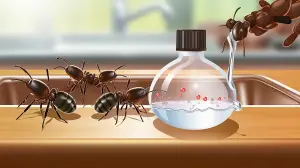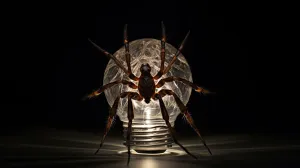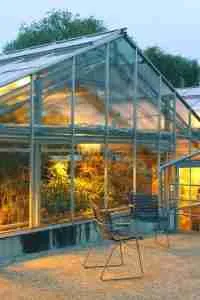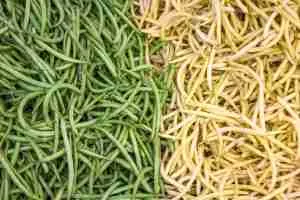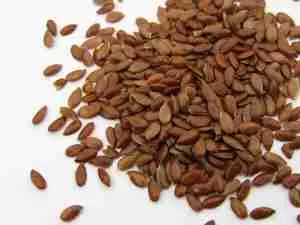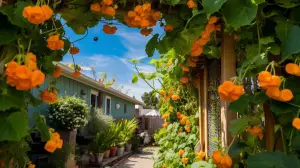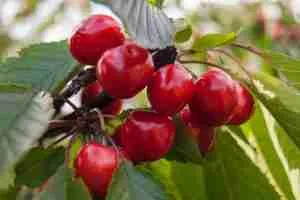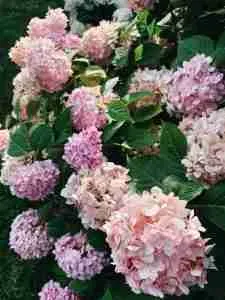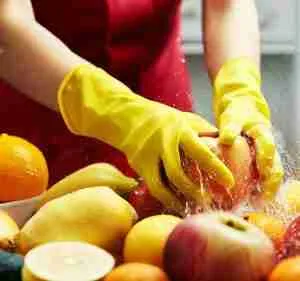Contents
ToggleKey Takeaway:
- Understand the value of companion planting as a method to enhance garden productivity.
- Choose companion plants that naturally repel pests, minimizing the need for chemicals.
- Incorporate plants that lure helpful insects for pollination and pest control.
- Use companion plants like tall sunflowers or corn as natural trellises, helping squash vines grow upward and maximize garden space.
- Plant legumes such as beans and peas to naturally fix nitrogen in the soil, promoting robust squash growth.
- Regularly monitor plant interactions. Adjust plant choices or positions to maintain a harmonious garden environment.
Introduction: Understanding the Importance of Companion Plants for Squash
The world of squash cultivation is beautifully complex, and one of its secrets lies in the magic of companion planting. Pairing the right plants with your squash can weave a tale of symbiosis, where each plant uplifts the other, creating a vibrant and thriving ecosystem. These companion plants can be the sentinels that ward off pests, the nurturers that enrich the soil, or the matchmakers that boost pollination.
Dive into this garden narrative and discover how you can elevate your squash crops to unparalleled heights. Embrace the potential; let the right companions lead the way. If you’re also growing strawberries, discover their ideal companion plants here.
Corn: A Traditional Companion Plant for Squash

For generations, the pairing of corn and squash has been more than mere garden strategy – it’s a dance of mutual support and respect between two plants. Together, they paint a picture of nature’s elegance and symbiosis.
Let’s break down this beautiful partnership with some key benefits:
Corn as Squash’s Sturdy Ally:
- Supportive Backbone: Corn’s robust stalks serve as a natural trellis, offering squash vines a sturdy lift.
- Shady Friend: With their towering presence, corn plants cast dappled shadows upon the squash, preserving moisture and suppressing the unruly growth of weeds.
A Garden Guardian Against Pests: Beyond their physical attributes, corn plants play a role as nature’s guardians. Their presence deters menacing pests like squash bugs and vine borers, minimizing the need for chemical warfare in our gardens.
To harness the full potential of this classic duo, one must weave strategy with nature. Plant corn in clusters or rows, ensuring they mingle well for effective pollination. As for the squash, nestling them between the rows of corn will maximize space and allow each plant its rightful place under the sun.
In essence, the tale of corn and squash is one of synergy. By celebrating their strengths and understanding their needs, gardeners can reap bountiful harvests that are a testament to the power of companion planting.
Beans and Peas: Nitrogen-Fixing Partners for Squash
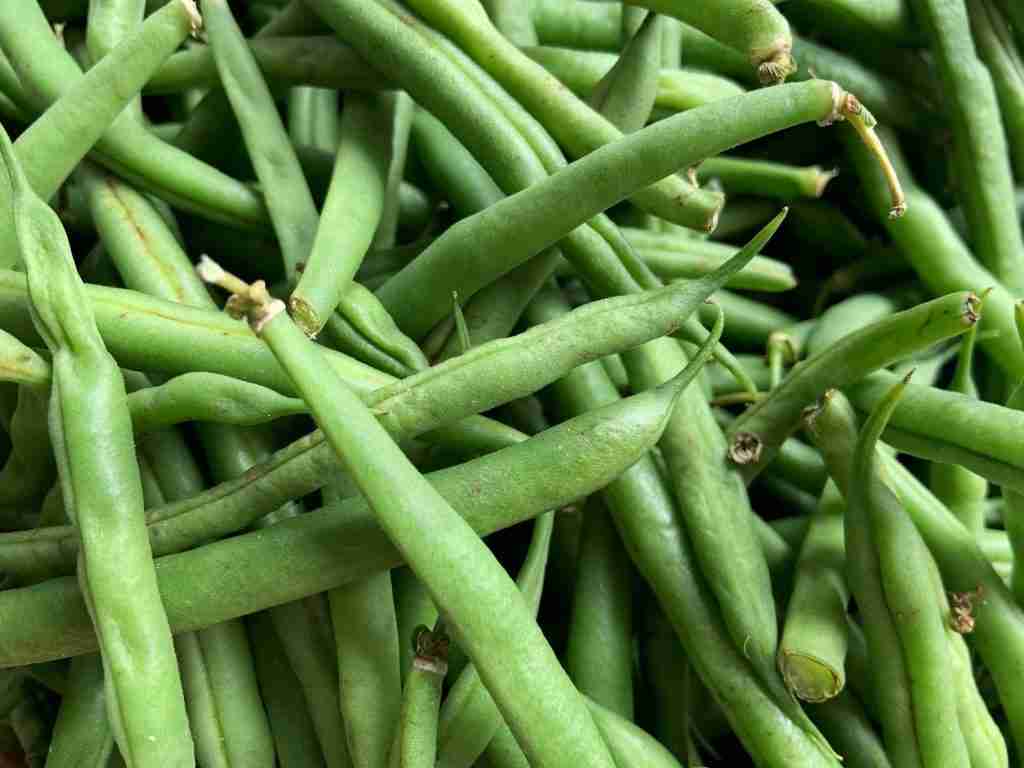
Think of beans and peas as nature’s little helpers for squash. Here’s why:
- Feeding the Soil: Both beans and peas have a special gift. They pull nitrogen, a vital nutrient, right from the air and feed it to the soil. This means a richer, healthier garden bed for squash to thrive in.
- Boosted Growth: With that extra shot of nitrogen, squash plants grow stronger and yield more.
- Guarding Against Pests: The distinct aroma of beans and peas? It’s not a favorite for some of the pests that love squash. So, having these legumes nearby is like having a natural pest repellent. Check out these other plants that are natural repellents for ticks.
- Keeping Weeds at Bay: Beans and peas grow close and thick, leaving little room for pesky weeds to pop up. This means the squash doesn’t have to fight as hard for its spot in the sun.
There’s more to beans and peas than just helping squash. Their sprawling growth keeps the soil cool and moist, while their roots give structure to the earth, preventing it from washing away.
And here’s a nod to history: Native Americans were onto this trio long before us. They planted beans, squash, and corn together in a smart system called the “Three Sisters.” It was nature’s perfect blend for a fruitful harvest.
So, the takeaway? Planting beans and peas with squash isn’t just a good idea – it’s time-tested wisdom. It’s about working with nature to get the best out of our gardens while keeping things simple and sustainable.
Sunflowers: Providing Shade and Enhancing Pollination for Squash
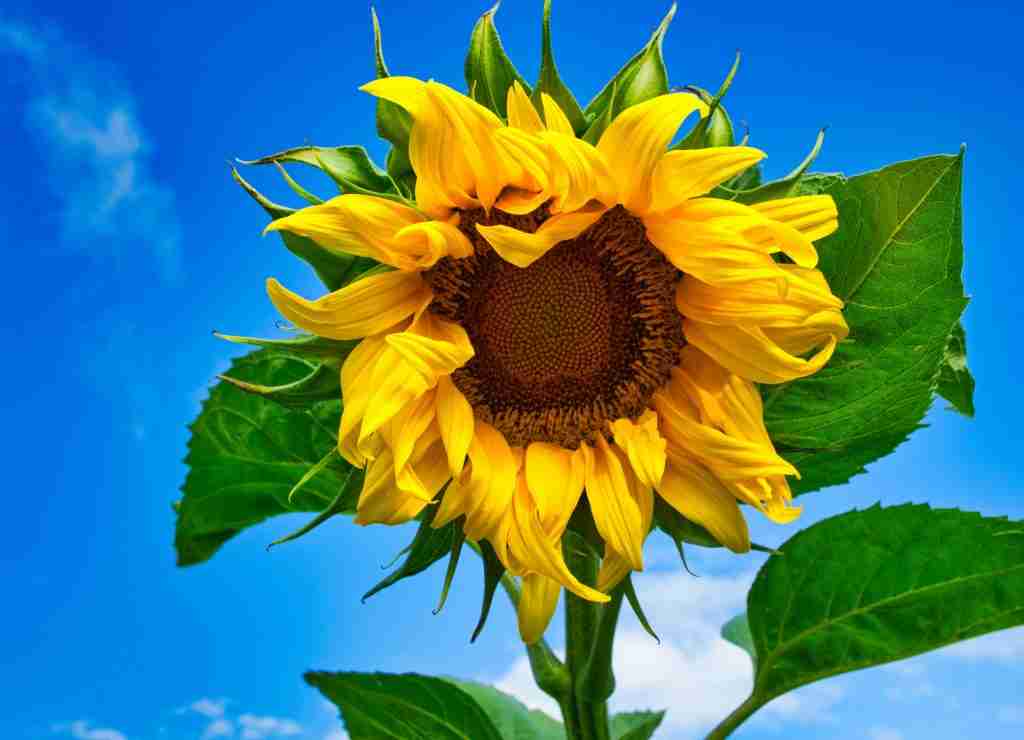
Sunflowers aren’t just a visual treat; they’re a gardener’s ally, especially when growing squash. Here’s the magic they weave in the garden:
- A Gentle Umbrella: Sunflowers, with their tall stature and broad leaves, naturally shade squash plants. Think of them as umbrellas, keeping squash shielded from scorching sun rays. This means less sunburn and a happier squash plant.
- Nature’s Magnet: Bees and butterflies can’t resist the charm of sunflowers. Their large, colorful blooms practically roll out the welcome mat for these pollinators. And when they’re done visiting sunflowers? They’re off to the next stop: squash flowers. More pollinators buzzing around equals better squash yields.
- A Helping Hand: Sunflowers don’t just stop at attracting pollinators. They offer their strong stems as natural supports for climbing squash vines. This gives squash a lift, letting the fruit dangle away from damp soil, reducing chances of rot.
And let’s not forget the visual delight! Sunflowers, standing tall beside sprawling squash, paint a lively scene in the garden. It’s nature’s art, truly.
Pro Tip: For the best gardening results, be thoughtful with planting. Dot sunflowers around your squash patch, giving each plant its room to flourish. This simple step ensures both your squash and sunflowers get the space and sunshine they deserve.
Marjoram: Deterring Squash Bugs and Maintaining a Pest-Free Garden
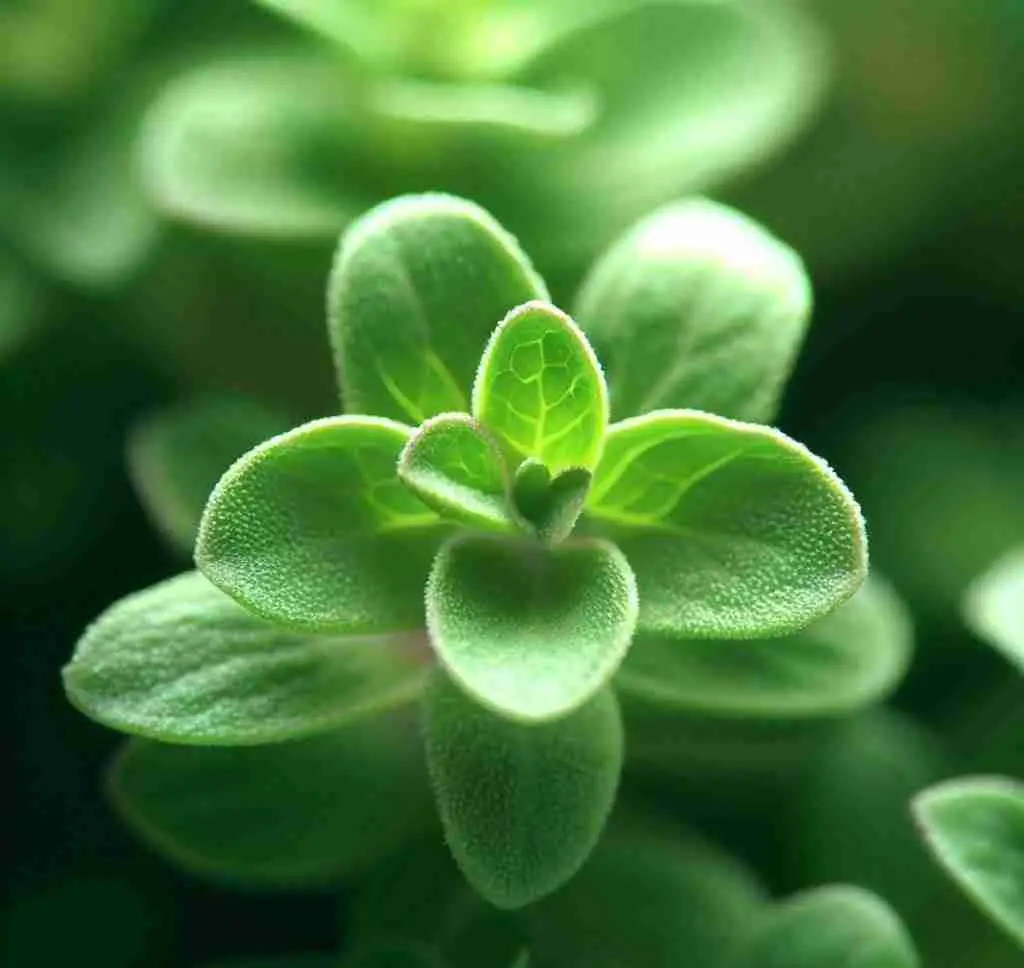
The delightful herb marjoram isn’t just for seasoning your dishes. It’s a gardener’s secret weapon, especially when growing squash. Wondering how? Let’s dive in.
Marjoram’s potent aroma acts like a natural barrier, sending squash bugs marching in the opposite direction. It’s like having an invisible fence that guards your squash, preventing those unwelcome guests from settling in.
But marjoram doesn’t stop there. This fragrant herb is a magnet for the garden’s good guys – those beneficial insects that snack on pesky bugs. So while it’s repelling the pests you don’t want, it’s rolling out the welcome mat for the ones you do.
Thinking of giving your garden this marjoram boost? By planting it alongside your squash, you’re setting up a natural defense system that promotes a healthy, vibrant garden. Trust us, your plants will thank you.
Dill: Repelling Pests and Attracting Beneficial Insects for Squash
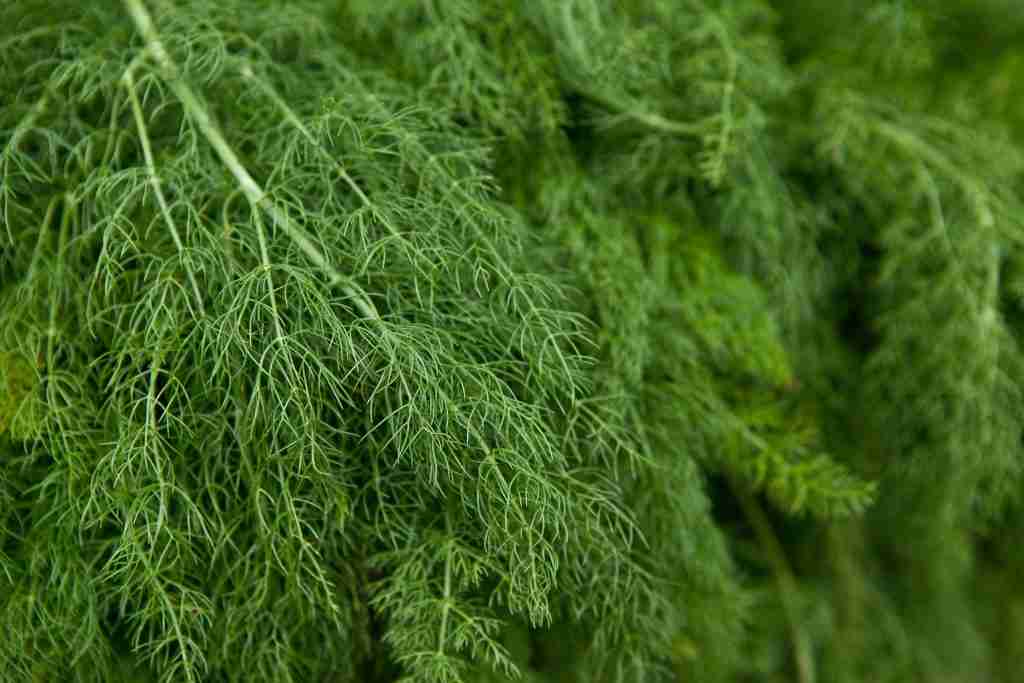
Consider dill as squash’s loyal ally in the garden, standing guard against pests and rolling out the red carpet for helpful critters.
Firstly, dill’s signature scent is a natural no-go zone for many of squash’s arch-enemies, like pesky aphids, determined squash bugs, and troublesome cucumber beetles. With dill in the vicinity, these unwelcome guests think twice about setting up camp. This means your garden can thrive without leaning on harsh chemical sprays.
But dill doesn’t just keep the bad guys out. It’s also a beacon for garden heroes like ladybugs and lacewings. These are nature’s pest controllers, always hungry for aphids and caterpillars. Dill’s vibrant yellow blossoms practically shout “dinner’s ready” to these beneficial bugs, luring them right where they’re needed most.
Want to make the most of dill’s protective prowess? Plant it near your squash or outline your squash beds with a dill border. This ensures that its protective aroma and showy flowers work right where they’re most effective.
So, next time you’re planning your garden, remember to give squash its trusty sidekick. Dill doesn’t just make your dishes tastier—it also makes your garden a fortress of health and productivity.
Radishes: Utilizing Empty Soil and Reducing Pest Populations
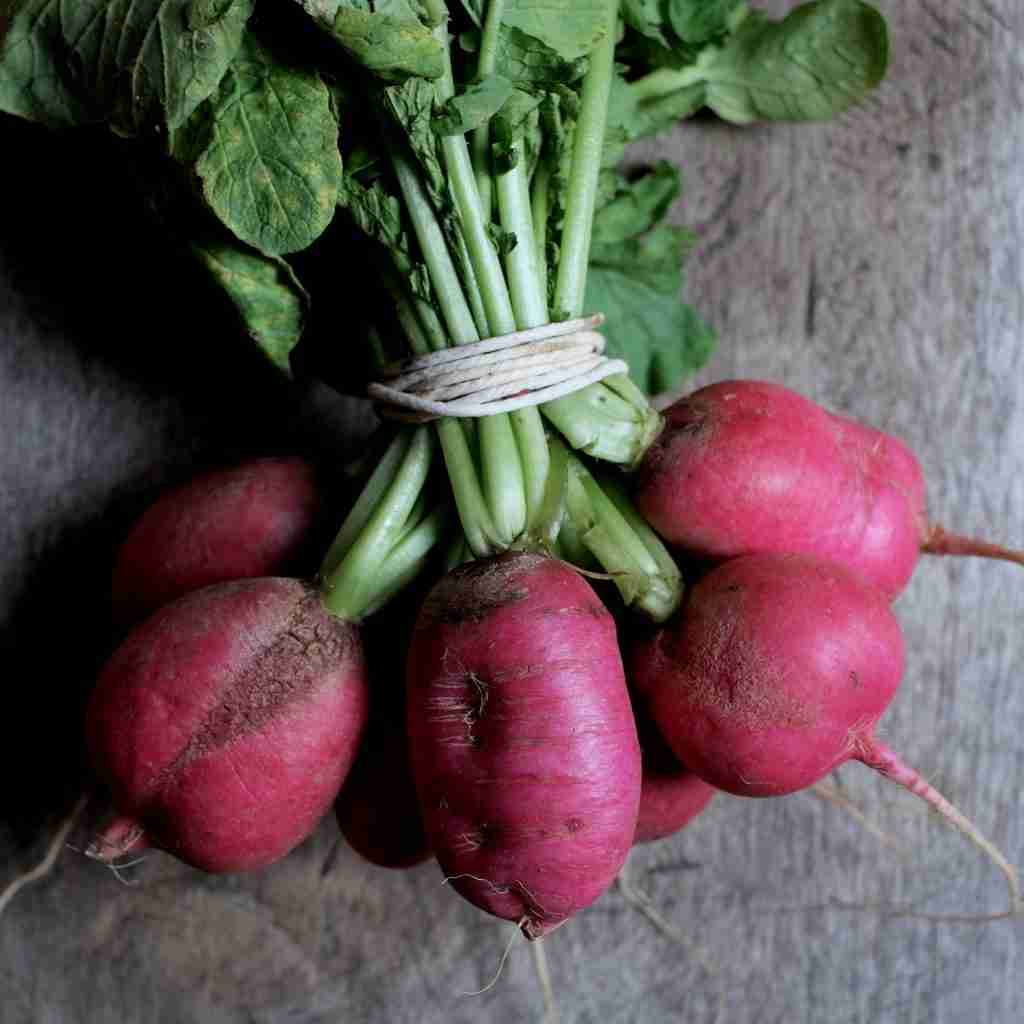
Ever glanced at an empty patch in your garden and thought, What can I plant there? Enter radishes, the quick-growing, multitasking champions of the garden world.
- First off, they’re masters at filling those gaps. Slide them between your squash plants and watch them flourish, effectively eliminating potential weeds. It’s like they’re giving you a little wink and saying, I’ve got this spot covered.
- But their superhero qualities don’t end there. Radishes come with a built-in pest deterrent. When you plant them alongside squash, they release natural compounds that pests can’t stand. So while your squash enjoys a pest-free existence, the radishes are on the front lines, keeping the troublemakers at bay.
- And let’s talk about their deep-reaching roots. These taproots act like miniature gardeners, tilling the earth as they grow and ensuring the soil remains airy and well-drained. This subterranean workout does wonders for the health of neighboring plants, like your squash.
Plus, radishes have a fan club in the insect world. Beneficial bugs, like ladybugs, are drawn to them. These friendly critters repay the favor by feasting on pests that might have their eyes on your squash.
In a nutshell, planting radishes is a win-win. They make the most of every square inch, guard against pests, and keep the soil in top shape. So next time you’re out in the garden, give a nod of thanks to these hard-working little heroes.
Mint: Repelling Insects and Avoiding Overgrowth in the Garden
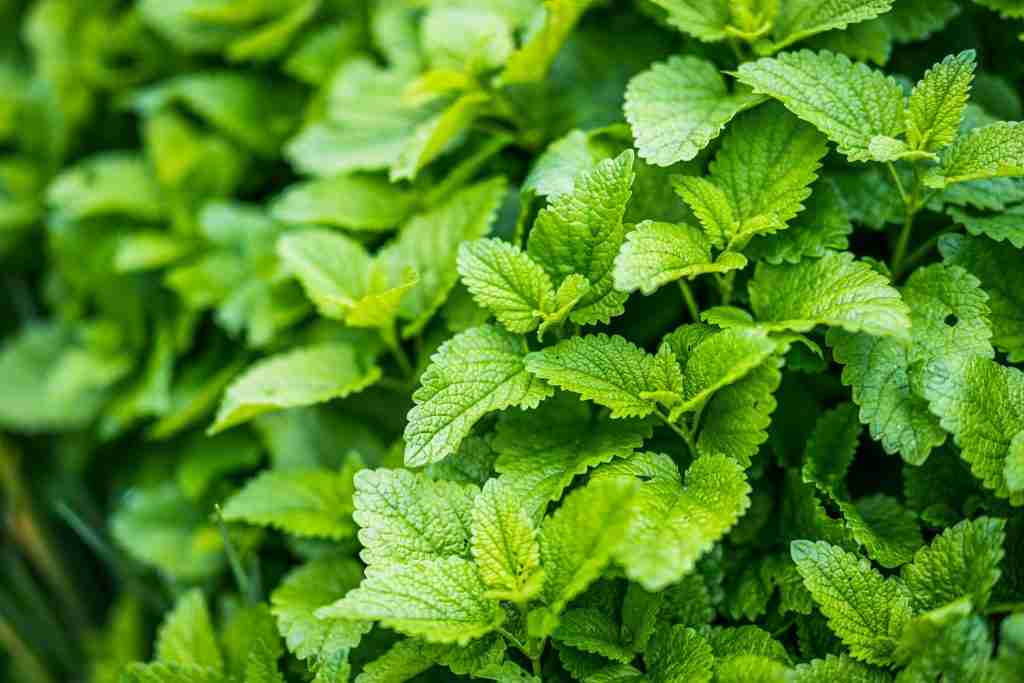
Mint isn’t just for your tea or garnish; it’s a garden’s best friend. This aromatic herb does double duty: not only does it send insects packing with its invigorating scent, but it also helps keep the garden in check, preventing other plants from taking over. For squash growers, it’s a match made in heaven, ensuring that their beloved plants remain both healthy and pest-free.
And as a delightful bonus? That refreshing minty aroma wafts through the garden, making every moment spent tending to your plants feel like a breath of fresh air. So next time you’re thinking of a garden upgrade, remember the mighty mint—your squash will thank you!
Borage: Boosting Pollinator Activity and Adding Color to Your Garden
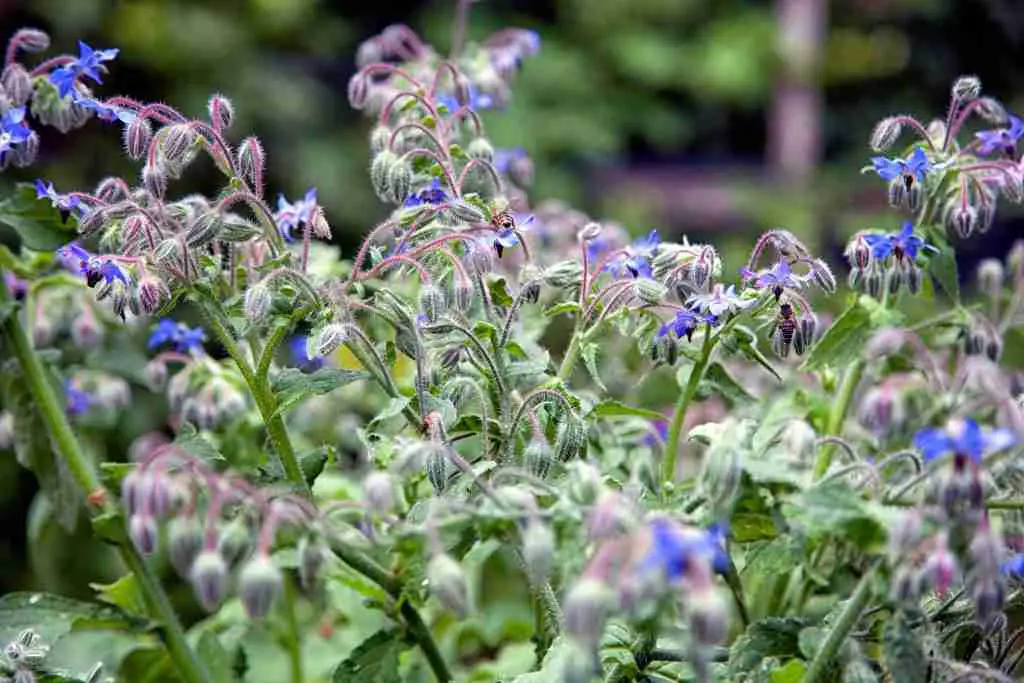
Think of borage as a garden’s secret weapon. This vibrant plant, with its dazzling blue flowers, is more than just a pretty face. It’s a magnet for bees, butterflies, and other helpful insects, turning your garden into a pollinator paradise. With borage around, your squash plants will enjoy increased pollination, promising fuller and more bountiful harvests.
But that’s not all. Borage doesn’t just invite the good bugs; its presence also keeps nuisances, like hornworms, at bay. For those who garden organically, borage is a must-have.
Pro Tip: Nestle borage next to your squash. It’s a simple move with delightful rewards: bursts of color, buzzing pollinators, and a bumper squash crop. Happy gardening!
Garlic: Repelling Pests and Planning Ahead for Effective Companion Planting
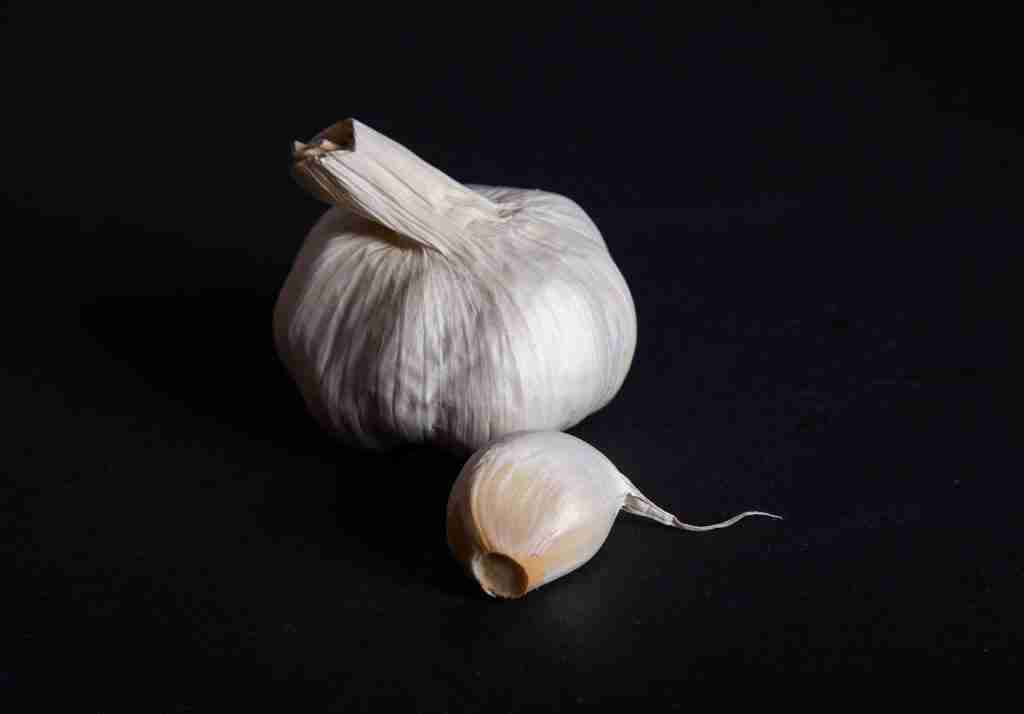
Imagine having a natural, fragrant ally in your garden that not only fends off pesky invaders but also champions the health of your beloved squash plants. Enter garlic, every gardener’s secret weapon.
- Garden Guardian: Garlic’s robust aroma is nature’s very own pest repellent. Aphids, beetles, and even nematodes think twice before approaching, safeguarding your squash.
- Natural Fungicide: Garlic’s inherent anti-fungal traits make it a natural protector against common nuisances like powdery mildew.
- Complementary Growth: With their distinct growth patterns, garlic and squash are like two puzzle pieces, fitting perfectly together to maximize space.
- Nutrient Enhancement: Garlic releases sulfur, a natural soil enhancer, paving the way for thriving microorganisms and nutrient absorption.
- Companion to Repel: Beans, tomatoes, and other plants can also benefit from garlic’s protective aura, broadening its role as a garden guardian.
- Planning for Success: Get garlic in the ground ahead of time. Let it set down roots and build its defenses before pests even consider an onslaught.
If you’re aiming for an organic garden, garlic is your low-maintenance, high-reward ally.
A few pro tips to unlock its full potential:
- Interplanting: Dot your squash bed with garlic plants for a uniform shield against pests.
- Timing: Get your garlic settled before peak pest season for maximum protection.
- Companion Variety: Opt for garlic types rich in sulfur for an extra layer of defense and a soil boost.
Embrace garlic in your garden strategy. Beyond its culinary appeal, it’s a game-changer, ensuring your squash and other plants thrive in a harmonious, productive environment.
Conclusion: Harnessing the Power of Companion Plants for Successful Squash Gardening
In the world of gardening, few strategies are as powerful and transformative as companion planting. With the right companions, your squash garden can thrive, showcasing the wonder of nature’s synergy. Here’s the essence of this gardening wizardry:
- Nature’s Pest Repellent: Plants like marigolds are the garden’s bouncers, naturally shooing away troublemakers like aphids and nematodes.
- Attracting Helpful Friends: Herbs such as basil and dill are the garden’s social butterflies, inviting bees and wasps, the VIPs of pollination.
- Shade and Support: Think of tall plants like corn or sunflowers as the protective elder siblings in the garden family. They not only offer shade but also lend a supporting arm for squash vines to clamber up. It’s nature’s way of making the most of every inch and keeping plants happy and disease-free.
- Soil Boosters: Some plants are like the garden’s nutritionists. Legumes, including beans and peas, enrich the soil with nitrogen, setting the stage for squash to flourish.
Golden Tip: While nature is magical, it also requires keen observation. Keep an eye on your plant family, ensuring everyone gets along. If a plant seems out of place or a tad too dominant, don’t hesitate to shuffle things around. Here’s to a squash garden that’s as harmonious as it is bountiful!
Five Facts About Companion Plants for Squash:
- ✅ Companion planting squash with corn, beans, and sunflowers can provide shade, shelter, and trellising support. (Source: Team Research)
- ✅ Marjoram and dill are herbs that can repel squash bugs and attract beneficial insects for natural pest control. (Source: Team Research)
- ✅ Radishes planted alongside squash can utilize the empty soil space and act as a trap crop for flea beetles. (Source: Team Research)
- ✅ Mint plants emit a scent that repels insects, making them an effective companion plant for squash. (Source: Team Research)
- ✅ Garlic and other allium plants can be planted alongside squash to repel pests like squash bugs, aphids, and deer. (Source: Team Research)
FAQs
What are companion plants for squash?
Companion plants for squash are other plants that are grown alongside squash to benefit their growth and health. They can help prevent pests, increase pollination, and improve the overall productivity of squash plants.
Can corn be a companion plant for squash?
Yes, corn can be a companion plant for squash. In a traditional plant partnership known as the “Three Sisters,” corn provides shade for squash plants, while squash leaves act as a living mulch for the corn, preventing weed growth.
Do beans and peas make good companion plants for squash?
Yes, beans and peas are beneficial companion plants for squash. They have nitrogen-fixing abilities, which improve soil quality and provide necessary nutrients for healthy squash development. They can also share trellising systems with climbing squash plants, saving space in the garden.
How can sunflowers benefit squash plants?
Sunflowers can benefit squash plants in multiple ways. They provide shade and shelter for squash leaves and fruit, protect them from the sun’s harsh rays. Sunflowers also attract pollinators, ensuring proper pollination of squash blossoms for fruit production.
Which herbs can repel pests and be companion plants for squash?
Herbs like marjoram, dill, mint, and garlic can repel pests and make excellent companion plants for squash. Marjoram and dill deter squash bugs, while mint repels insects like flea beetles and squash bugs. Garlic emits a strong scent that helps repel various pests, including aphids and deer.
Can radishes be companion plants for squash?
Yes, radishes can be companion plants for squash. Interplanting radishes with squash utilizes the empty soil beneath squash vines and provides a harvest of fresh veggies while waiting for squash to ripen. Radishes also act as a trap crop for flea beetles and can reduce squash vine borer populations.
Additional Reading
Companion planting can be incredibly advantageous for the well-being of your squash plants. For a more holistic understanding of gardening, plant care, and related intricacies, you may find the following articles helpful:
- What Part of the Green Onion Do You Use?: Unravel the culinary delights of green onions and understand the different parts of this versatile plant that can be used in your kitchen.
- How Long Do Pansies Last?: Dive into the vibrant world of pansies and discover the lifespan of these beautiful blooms, as well as care tips to prolong their display.
- Is Lemon Grass a Perennial?: Gain insight into the growth pattern of lemon grass, a staple in many Asian cuisines, and its classification as a perennial or annual.
- How to Propagate Philodendron: Embark on a plant propagation journey and master the art of multiplying your philodendron plants with ease and success.
- How Do Plants Grow?: Dive deep into the botanical world to grasp the fundamental processes and factors that drive plant growth and sustenance.



